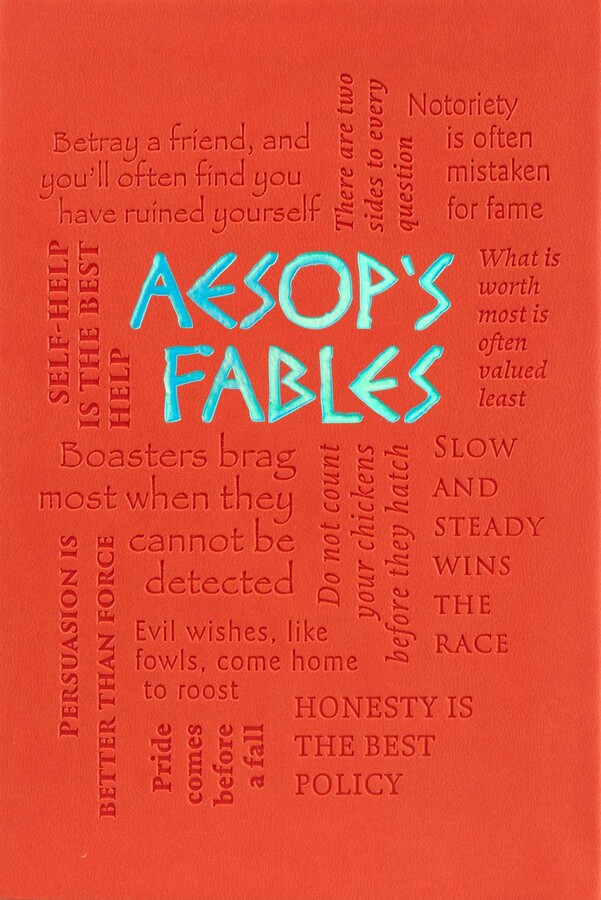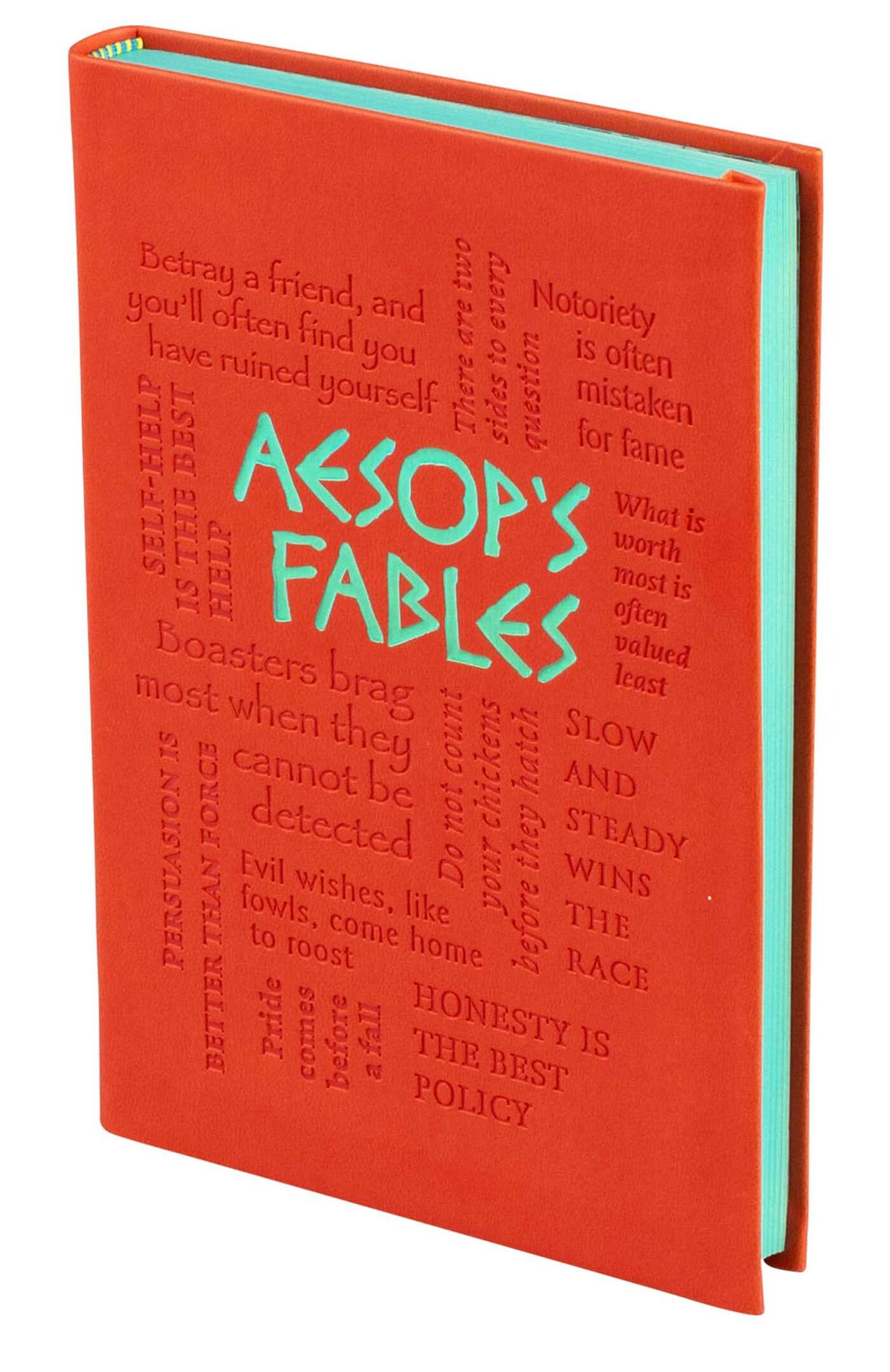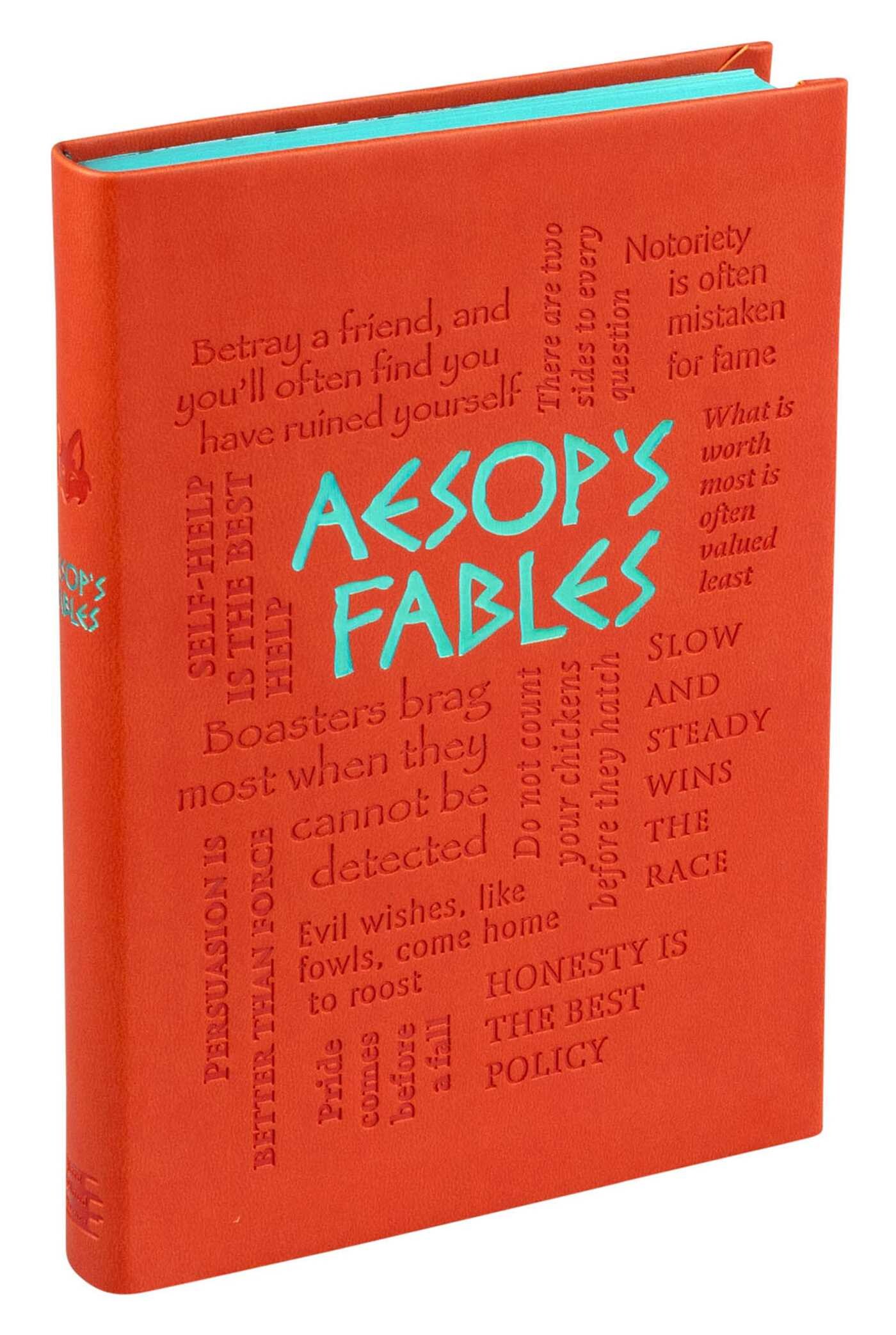Get our latest book recommendations, author news, competitions, offers, and other information right to your inbox.
Published by Canterbury Classics
Distributed by Simon & Schuster
Table of Contents
About The Book
This collection of charming and enduring stories conveys morals to young and old alike.
Aesop was a slave and storyteller who lived in ancient Greece around 620–564 BCE. No writings by him exist (if they ever existed at all), yet numerous stories and tales have been credited to him and have been shared through oral tradition throughout the world. Many of these use animals as the main characters to convey deeper meanings and morals that have become ingrained in our cultural—and personal—belief systems. For example, in “The Goatherd and the Goat,” we learn that there is no use trying to hide what can’t be hidden. In “The Ass and the Purchaser,” we find that people are known by the company they keep. In “The Boys and the Frogs,” one person’s pleasure may be another person’s pain. “The Dogs and the Fox” shows how easy it is to kick someone when they’re down. And misery loves company, as we see in “The Fox Without a Tail." Featuring colorful sprayed edges and a heat-burnished cover with foil stamping, Aesop’s Fables is a stylish collection of stories that have influenced thousands of other literary works.
Aesop was a slave and storyteller who lived in ancient Greece around 620–564 BCE. No writings by him exist (if they ever existed at all), yet numerous stories and tales have been credited to him and have been shared through oral tradition throughout the world. Many of these use animals as the main characters to convey deeper meanings and morals that have become ingrained in our cultural—and personal—belief systems. For example, in “The Goatherd and the Goat,” we learn that there is no use trying to hide what can’t be hidden. In “The Ass and the Purchaser,” we find that people are known by the company they keep. In “The Boys and the Frogs,” one person’s pleasure may be another person’s pain. “The Dogs and the Fox” shows how easy it is to kick someone when they’re down. And misery loves company, as we see in “The Fox Without a Tail." Featuring colorful sprayed edges and a heat-burnished cover with foil stamping, Aesop’s Fables is a stylish collection of stories that have influenced thousands of other literary works.
Product Details
- Publisher: Canterbury Classics (February 27, 2025)
- Length: 256 pages
- ISBN13: 9781667209579
Browse Related Books
Resources and Downloads
High Resolution Images
- Book Cover Image (jpg): Aesop's Fables 2nd Edition Paperback 9781667209579











